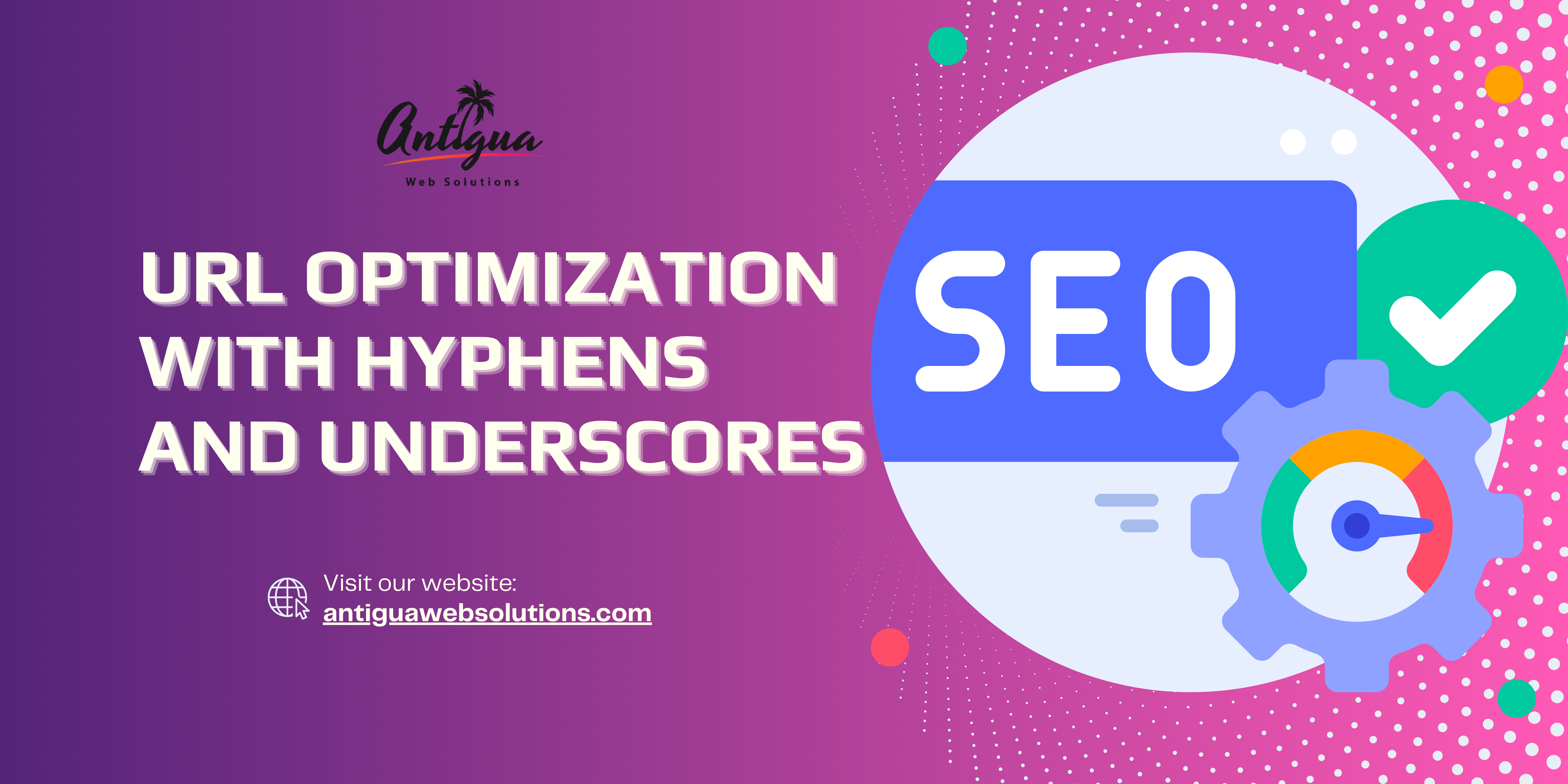Creating an SEO-friendly URL structure is a fundamental aspect of optimizing your website for better search engine visibility. This guide will walk you through the impact of using hyphens in URLs, dashes in URLs, and underscores in URLs while adhering to Google’s latest updates. We’ll also explore how to ensure your URLs are clean, readable, and beneficial for search rankings.
Why URL Structure Matters
URL structure is a crucial aspect of website optimization, impacting both user experience and search engine rankings. A well-structured URL enhances readability, making it easier for users to understand the content of a page at a glance. Search engines also use URLs to determine the relevance of a webpage, and clean, keyword-rich URLs improve indexing and visibility. Proper URL structure can increase click-through rates (CTR), as descriptive URLs build trust and credibility. Additionally, a logical URL hierarchy ensures better navigation, benefiting both visitors and search engine crawlers. Optimizing URL structure is essential for a strong foundation in SEO success.
Your URL structure acts as a roadmap for search engines and users. A well-optimized URL can:
- Improve SEO rankings.
- Enhance user experience by making URLs readable and relevant.
- Assist search engines in understanding the page content.
Understanding the role of hyphens, dashes, and underscores in URLs is critical to achieving these goals.
Hyphens in URLs: Good or Bad?
Hyphens in URLs are widely regarded as a best practice for creating SEO-friendly web addresses. Google and SEO experts recommend using hyphens (-) as word separators because they enhance readability and indexing. For example, a URL like www.example.com/seo-tips is easier to understand and more user-friendly than www.example.com/seotips. Hyphens prevent keyword clumping and help search engines accurately interpret the content, boosting your site’s visibility. While hyphens are beneficial, excessive use can make URLs look spammy. The key is to use them strategically, keeping URLs concise, relevant, and free of unnecessary characters to maximize both usability and SEO performance.
The Role of Hyphens in URLs
Hyphens in URLs are widely recommended by SEO experts and Google itself. They serve as word separators, making URLs easier to read and understand for both users and search engines.
For example:
- SEO-friendly URL:
www.example.com/seo-tips - Non-optimized URL:
www.example.com/seotips
Benefits of Using Hyphens in URLs
- Improves Readability: Hyphens separate words clearly, making URLs user-friendly.
- Better Indexing: Google prefers hyphens in URLs over underscores as word separators.
- Avoids Keyword Clumping: A URL like
digital-marketing-tipsis easier to interpret thandigitalmarketingtips.
Potential Drawbacks
While hyphens are highly recommended, overusing them may make your URL appear spammy. Keep the URL concise and relevant.
Dash in URLs: Is It Different from Hyphens?
When discussing URLs, the terms dash and hyphen are often used interchangeably, and they refer to the same character (-). In the context of web addresses, a dash in URLs is identical to a hyphen and carries the same SEO benefits. Using dashes improves readability, separates words effectively, and aligns with Google’s preference for word separators. For example, www.example.com/seo-tips is user-friendly and easy for search engines to interpret. It’s important to note that while dashes are ideal, they should be used judiciously to avoid cluttered URLs. Their correct application ensures a clean, professional, and SEO-friendly web structure.
The terms “dash” and “hyphen” are often used interchangeably, but technically, they refer to the same character (-) in the context of URLs. Using a dash in URLs is equivalent to using a hyphen and carries the same benefits.
Hyphen vs. Underscore in URLs: What Does Google Prefer?
Google’s Stand on Word Separators
Google explicitly recommends using hyphens (-) instead of underscores (_) to separate words in URLs. Underscores are treated as connectors, which can affect how search engines interpret your content.
For instance:
- URL with a hyphen:
www.example.com/seo-tips(interpreted as “SEO tips”). - URL with an underscore:
www.example.com/seo_tips(interpreted as “seotips”).
Why Underscores in URLs Are Less Effective
- Reduced Readability: Underscores are harder to spot, especially when URLs are underlined in hyperlinks.
- Indexing Challenges: Search engines may not recognize underscores as word separators, leading to inaccurate indexing.
- User Experience: Users are accustomed to hyphens, making underscores unfamiliar and less user-friendly.
Underscores in URLs: Are They Ever Useful?
While underscores in URLs are not ideal for SEO, they may still have some niche applications, such as:
- Legacy systems where underscores are already in use.
- Programming environments where underscores are standard naming conventions.
However, transitioning to hyphens in URLs is advisable for long-term SEO benefits.
Best Practices for SEO-Friendly URLs
1. Use Hyphens as Word Separators
Stick to hyphens for clean and readable URLs.
2. Keep URLs Short and Relevant
Avoid unnecessary words. For example:
- Optimal:
www.example.com/url-optimization-tips - Avoid:
www.example.com/how-to-optimize-your-urls-for-better-seo-results
3. Incorporate Keywords Naturally
Integrate primary keywords like hyphen in URL or dash in URL, but avoid keyword stuffing.
4. Use Lowercase Letters
URLs are case-sensitive; using lowercase ensures consistency.
5. Avoid Special Characters
Avoid characters like #, ?, and %, which can complicate URL readability and indexing.
The Importance of Clean URLs
What Are Clean URLs?
A clean URL is one that is:
- Easy to read.
- Descriptive of the page content.
- Free from unnecessary parameters or special characters.
Benefits of Clean URLs
- Higher Click-Through Rates (CTR): Descriptive URLs encourage users to click.
- Better SEO Performance: Search engines favor clean, keyword-rich URLs.
- Enhanced User Trust: Clean URLs appear more professional and credible.
LSI Keywords: Enhancing URL Relevance
Incorporating LSI (Latent Semantic Indexing) keywords in your content helps search engines understand the context better. Here are some examples:
- URL optimization tips: Techniques for crafting effective URLs.
- SEO-friendly URLs: Guidelines for creating URLs that rank well.
- Google SEO guidelines for URLs: Official recommendations for URL structure.
- Word separators in URLs: Exploring the impact of separators like hyphens and underscores.
Common Questions About URL Optimization
1. Are Hyphens in URLs Good or Bad for SEO?
Hyphens are good for SEO as they improve readability and indexing.
2. Can I Use a Dash in URL Instead of a Hyphen?
Yes, a dash and hyphen are the same in URL context.
3. Why Avoid Using Underscores in URLs?
Underscores hinder readability and indexing, making them less ideal than hyphens.
4. Should I Update Old URLs with Underscores?
If possible, migrate to hyphenated URLs, but ensure proper redirects to avoid losing traffic.
Conclusion
The choice between hyphens, dashes, and underscores in URLs significantly impacts your website’s SEO performance. Adopting SEO-friendly URLs by using hyphens and following Google’s guidelines ensures better readability, improved indexing, and higher rankings.
At Antigua Web Solutions, we specialize in crafting effective digital strategies, including URL optimization, SEO content creation, and web development. Our team is dedicated to helping businesses implement best practices that drive measurable results. Whether you’re building a new website or refining your existing one, we provide expert guidance tailored to your needs.
By applying these URL optimization tips, you can enhance your website’s performance and attract more leads. Reach out to Antigua Web Solutions for comprehensive digital solutions that elevate your online presence.





